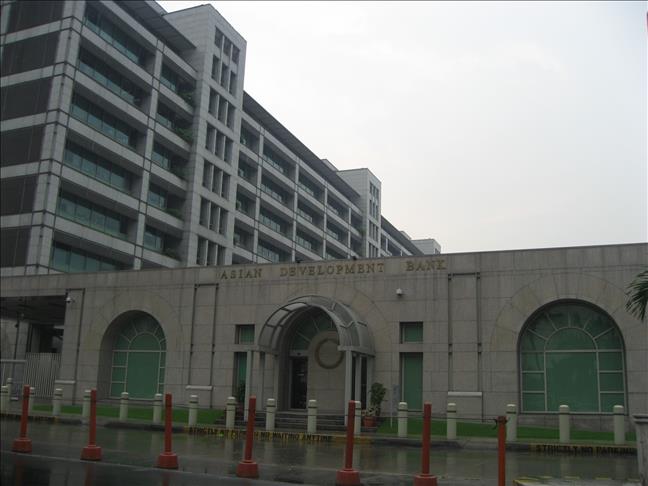
by Andrew Jay Rosenbaum
ANKARA
The U.S. and the U.K. are locked in a diplomatic battle over Britain's bid to join China's Asian Infrastructure Investment Bank project.
The White House issued a statement on Friday warning the British government about standards in the project, viewed as a rival to the U.S.-supported international institutions such as the World Bank and the Asian Development Bank.
“It is important to note that countries that become prospective members of the AIIB will be responsible for the standards adopted in the articles of agreement and their implementation," a presidential spokesman said. "This is the U.K.’s sovereign decision. We hope and expect that the UK will use its voice to push for adoption of high standards."
Speaking to the press on Thursday, U.K. Chancellor of the Exchequer George Osborne said the bank offered an “unrivalled opportunity” for the U.K. and Asia to “invest and grow together.” He added that the U.K. would become a founding member of the new bank.
Political analysts said the White House is concerned the project will become a tool of Chinese foreign policy.
China has sought to increase its influence at the World Bank and the International Monetary Fund, demanding changes that would allow emerging markets a greater voice in decisions. China has 4 percent of the voting power at the two institutions while the U.S. has 18 percent. In the Asian Development Bank, Japan’s vote is twice the size of China’s.
These changes were expected to be incorporated into a bill the U.S. Congress was due to review in December. Instead, Congress passed a bill which imposed conditions on the U.S. Treasury, which oversees relations with the World Bank, omitting any reform of the structure of the IMF or the World Bank.
The project to create an Asian bank dedicated to infrastructure development is seen as a way for China to create a competing institution, one in which Western influence is not predominant, explained Cecilia Tortajada, a senior research fellow at the Lee Kuan Yew School of Public Policy in Singapore.
“The new bank would boost China's influence internationally and enhance its soft power,” Tortajada said in a note published in October.
In a speech last July, Chinese President Xi Jinping explained that the bank would establish a “new type of more equal and balanced global development partnership."
He also discussed ways to strengthen coordination and cooperation within international and multilateral mechanisms "so as to win institutional power and rights of voice for developing countries."
25 nations to found bank
On Oct. 24 last year, 21 nations agreed to found the new bank. Since then, four more have joined, including the U.K.
Australia, Indonesia and South Korea, among the most important Asian economies, have not joined.
Xi has said the bank would begin operations by the end of 2015. The bank is mandated to address what the Chinese government calls a massive infrastructure gap in Asia, valued at $8 trillion. Chinese government officials point out that the Asian Development Bank, which is capitalized at about $160 billion, cannot address all necessary development.
The Asian Development Bank will start life with $50 billion in capital but its founders hope that more countries will join and help to build its budget. The U.K. is well-positioned to provide a boost in capital.
Jin Liqun, the Chinese official who will head the bank, has been lobbying countries to persuade them to sign up. There are reports that U.S. lobbying against the bank has kept some away.
Jin has stated that the new bank will be rigorous in maintaining the kinds of standards that the U.S. has expressed concern over.
China has itself invested heavily in infrastructure in other countries, particularly in Africa, where it is a major investor in resources as well.
International Rivers, an anti-dam organization, claims that Chinese companies are involved in around 330 dam projects in 74 different countries. That claim may be inflated but it shows that China by itself funds more dam schemes than the World Bank. International Rivers also blames China for not upholding international environmental standards – a warning that the U.S. is echoing over the AIIB.
However, there is no reason to assume the new bank, which will be subject to intense international scrutiny, will not meet best practice standards. Whether it will gain the kind of international influence that the World Bank and the Asian Development Bank have is a fraught question.
Anadolu Agency website contains only a portion of the news stories offered to subscribers in the AA News Broadcasting System (HAS), and in summarized form. Please contact us for subscription options.

